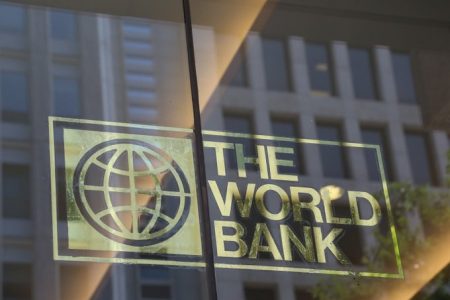WASHINGTON — The Government of Japan announced the launch of a strategic partnership with the Development Economics Vice Presidency (DEC) of the World Bank to enhance evidence-based policymaking in areas such as debt, human capital, governance and institutions, and technology and digital innovation.
“Japan is making a substantial contribution to strengthen the World Bank Group’s research and policy analysis,” said Mr. Indermit Gill, World Bank Group Chief Economist and Senior Vice President for Development Economics. “The funding will give an immediate boost to our efforts to improve debt transparency in developing economies. It will also help us develop the ideas that will be needed in the coming years to achieve poverty reduction, shared prosperity and greener growth.”
“We greatly value DEC’s extensive experience related to generating and disseminating foundational analysis and data, and this partnership will play a vital role in closing knowledge and data gaps, which is essential to achieve our development goals. We expect, in a broader perspective, that this partnership will lead to the progress in debt sustainability, improvement in human capital development, more effective institutions, as well as technological and digital innovations with robust governance including cybersecurity and data privacy, which Japan deems as key to maximizing the impact for the economic global growth,” said Toru Oe, Director of Multilateral Development Banks Division, International Bureau, Ministry of Finance of Japan.
Japan made an initial contribution of $3 million to the Knowledge for Change Umbrella Program, one of the longest running research trust funds in the World Bank that commenced its operation more than 20 years ago. The KCP has disbursed close to $80 million, supporting more than 370 projects for research, data, and capacity building activities.
Japan will also contribute $5 million to the Global Data Facility (GDF) to improve debt transparency and accountability, particularly through the redesign and expansion of the Debt Reporting System (DRS) and technical assistance to strengthen debt recording and reporting in borrowing countries.” The GDF was built to leapfrog data and statistical systems financing, stewardship, and advancement in response to the UN Statistical Commission’s High-Level Group for Partnership, Coordination, and Capacity Building for Statistics for the 2030 Agenda for Sustainable Development.
“Amid concurrent crises globally, we hold high expectation for the World Bank to play an essential role as a Knowledge Bank in augmenting and disseminating knowledge of high policy relevance. DEC’s long-standing efforts for data transparency and reconciliation is a case in point. We believe that this partnership will help produce cutting edge research and data products, which can constitute a fundamental basis for sound, innovative, and evidence-based policymaking,” said Mr. Takahiro Tsuda, Alternative Executive Director, the Japanese Executive Director’s Office of the World Bank.
High levels of debt globally has led to growing recognition of the need for more debt transparency and accountability, which is the foundation of better management of public liabilities and the effective and sustainable use of borrowed resources. “Debt data transparency is crucial for sustainable debt financing and evidence-based support when debt crises occur. With total debt levels already at a half-century high in low- and middle-income countries amidst a convergence of crises, Japan’s support couldn’t have come at a more opportune time,” said Haishan Fu, Director of the World Bank’s Development Data Group.
This partnership builds on a strong foundation of collaboration between Japan and DEC, as evidenced by joint work to strengthen development capacity through the Joint Japan/World Bank Graduate Scholarship Program and mostly recently through the Robert S. McNamara Scholarship Program. This strategic partnership launch signifies that DEC and the Government of Japan are committed to more systematically advancing knowledge creation and dissemination in development policy and practice.

